"SAD" Seasonal Affective Disorder. This time of year the combination of holiday overload + limited daylight can throw many of us into a funk. For many it isn't so much a lack of degrees and warmth as it is a lack of sunlight. "SAD" is real, a lack of sunshine can trigger a shortage of a hormone called melatonin, which regulates appetite, sleep cycles, even libido. Symptoms of SAD include the "winter blues", depression, anxiety, restless sleep, a craving for food (especially carbohydrates) and a lowered libido/sex drive. The vulnerability to SAD is directly related to a). latitude, and b). cloud cover. It's even more of a problem in the Pacific Northwest and downwind of the Great Lakes, where "lake effect" can mean far more cloud cover than we see here in Minnesota. It's thought that less than 1% of the population in Florida is affected, but the number may be closer to 10% at northern latitudes, from New Hampshire and Michigan to Minnesota and Washington State. I'm not a doctor, nor do I play one on TV. If you think you may be suffering from SAD the first thing to do is schedule an appointment with your doctor. Light therapy can work (literally sitting in front of "full-spectrum" lights which mimic the sun). I have one of these full-spectrum bulbs in my family room - and I have to say that it helps. You can also get supplements of melatonin (by prescription) - and a nice, long, sunny, southern vacation can work wonders. More on "SAD" from Wikipedia
here. The Mayo Clinic has a write-up on the topic
here. For more information on "light boxes", these full spectrum lights that can help with symptoms, click
here. Enough clicking.
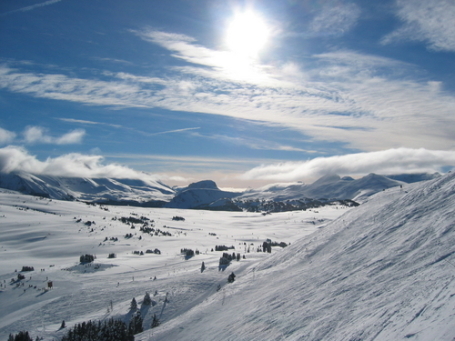

. Is it even theoretically possible to be "stranded" in a bar for 8 days? I guess so. An excerpt from a curious
story at neatorama.com: "
Oh, the horror! Five employees and two patrons were stranded at Lion Inn in North Yorkshire, England due to heavy snow. The inn is also a bed-and-breakfast, equipped with plenty of food, telephone and internet service, and alcohol. Chef Daniel Butterworth told of the harrowing ordeal.At first the staff, all aged under 25, got stuck into the drinks, he said, but on the third day they eased off." Uh huh. Almost makes one long for a crippling, weeklong snow storm.
10 Unusual Ways To Remove Snow. From lawncaretips.org, a few creative ways to get rid of the snow:
While a white Christmas may seem like a beautiful story book way to celebrate the holidays, many people don’t realize how much of a hassle snow can be. Keeping sidewalks and driveways free of ice and snow can turn into a full time job for those who live in snowy areas. These overworked souls will try anything to make clearing all that snow a little bit easier, and some of the methods they utilize can be a bit unusual. Here are 10 unusual ways to remove snow:
- Sprinkle Salt: Adding salt to frozen snow lowers the temperature at which ice melts and is an effective way to melt snow and prevent ice from forming. In fact, if you’re expecting a freeze, sprinkling some salt on walkways and sidewalks will prevent ice and snow from accumulating. Salting is a great way to remove snow and keep your driveway and sidewalk clear of frozen obstacles.
- Sweep: When you don’t have a shovel (and even when you do), try removing snow with a broom. You can sweep it off the walkways and even scoop it up with a dust pan. Rather than breaking your back with a shovel, sweeping snow can be a bit easier, especially when there isn’t a huge amount of snow on the ground.
For the rest of the article and some rather unorthodox ways to get snow off your driveway/sidewalk click
here.
Surface Map. A "dirty high" pushing into Minnesota produced a couple hours of rare, December sunlight Monday. There was still a fair amount of residual moisture/flurry activity, enough for a coating of fluff, thus the "dirty" designation (meteorologists have way too much free time to think up these dumb terms). A tight cyclonic pressure gradient over the Great Lakes turned on significant lake effect snow downwind of the lakes. Montreal, in Iron County Wisconsin (far northwest) picked up 12" of lake effect snow in the last 24 hours. Check out some of the snowfall updates from the NWS
here.
Welcome To The Deep Freeze. Enjoy the "moderate" temperatures much of this week (shot at 30 on Thursday ahead of a clipper?) but temperatures tumble over the weekend, possibly holding in single digits Sunday and Monday. The good news: this next Arctic invasion won't last long - readings moderate back into the 20s by the middle of next week.
Minor Clipping. Thursday's clipper looks less impressive with each passing model run - latest guidance hinting at a coating to (maybe) an inch Thursday, perhaps a few inches up north.
Accumulating Snow Potential. It's early, the models are not coming into alignment (yet) so confidence levels are low. Thursday's clipper may produce a couple inches of snow, possibly enough to shovel and plow as the next surge of Arctic air approaches - a much better chance of snow/ice to our south over Iowa Friday into early Saturday. We'll have to keep an eye on late-week weather. It's rare that bitter air just sails into town (without being preceded by a "burst" of fluff). Stay tuned...
Snow Potential by Midnight Thursday. Models are hinting at an inch or 2 from Thursday's clipper - right now it doesn't look terribly impressive, certainly not nearly on a scale with last week's (Pacific-reinforced) Alberta Clipper that deposited a 4-12" carpet of white Friday night.
Snow From Space. The University of Wisconsin CIMSS weather
blog has a story on the narrow stripe of significant snow that swept across North Carolina (the same clipper than dumped 4-10" on the metro area last weekend). At first glance it's hard distinguishing the narrow band of snow (up to 3" fell near Greesborog, NC) but the clouds have texture, while snow on the ground shows up as a muted, faded band of white.
 Heaviest Rains In Columbia's History Trigger Deadly Landslides: 145 Killed Or Missing
Heaviest Rains In Columbia's History Trigger Deadly Landslides: 145 Killed Or Missing. From Jeff Master's
Wunderblog: "
Colombia's heaviest rains in history triggered a landslide in the poor hillside community of Bello on Sunday, killing at least 20 people and leaving 125 missing. This year's unprecedented rainy season had already killed 176 people prior to Sunday, making it one of the deadliest flooding years in Colombia's history, according to the director of Colombia's national disaster management office, Luz Armanda Pulido. In 2009, 110 people died in flooding disasters, and 48 were killed in 2008, according to Colombian Red Cross director of national relief operations Carlos Ivan Marquez. This year's rains are the heaviest in the 42 years since Colombia's weather service was created and began taking data, agency director Ricardo Lozano said."
In On-Line Privacy Plan, Opt-Out Question Looms. If you could (with the click of a button) opt-out of allowing advertisers to track your page views (and subsequent interests) would you? If so, how would content providers charge for content? The concern: advertisers who subsidize content could lose billions of dollars. The options aren't particularly attractive either. Erect pay walls? Most people do NOT want to pay for content, unless it's niche content like stock information, etc. From an
article in the New York Times: "
If the vast majority of online users chose not to have their Internet activity tracked, the proposed “do not track” system could have a severe effect on the industry, some experts say. It would cause major harm to the companies like online advertising networks, small and midsize publishers and technology companies like Yahoo that earn a large percentage of their revenue from advertising that is tailored to users based on the sites they have visited."
Welcome To The Deep Freeze. It struck me on Monday - we're living in a freezer. "Survivor - Minnesota". Highs held in the teens statewide, a little urban heat island effect (asphalt/concrete/buildings) keeping the MSP metro area a few degrees warmer. Officially .2" snow fell at St. Cloud, .3" in the Twin Cities, a little over half an inch up at International Falls.
Paul's Conservation Minnesota Outlook for the Twin Cities and all of Minnesota:
TODAY: Chilled sunlight, good travel conditions. Winds: NW 8-13
TONIGHT: Partly cloudy, still cold. Low: 3
WEDNESDAY: Clouds increase, no problems. High: 18
THURSDAY: Snow likely, an inch or two from next clipper? High: 28
FRIDAY: Burst of powdery snow late? Potential for a couple inches as we head into the weekend. High: 23
SATURDAY: Snow tapers, cold wind kicks in. High: 18
SUNDAY: Numbing breeze. Get me out of here! At least the sun will be out. Low: -2 High: 8
MONDAY: Typical for late January. "Nanook!" Blue sky, smells like the Yukon. Low: -8 High: 6
Feeling "SAD"?
"Nothing between Minnesota and the North Pole but a barbed wire fence." Yes, that point has been painfully evident in recent days - Arctic exhaust sweeping south of the border. One wonders just how much colder it can get in January, when temperatures historically bottom out?
In the summer its not the heat but the humidity. During the dark days of winter it's the absence of sunlight that can leave some of us crying the blues. As many as 1 in 10 Minnesotans can be physically impaired by a lack of sunlight; it impacts the production of a hormone (melatonin) which regulates everything from appetite to libido.
Symptoms of "SAD" (Seasonal Affective Disorder) include anxiety, depression, a craving for carbohydrates and a strong desire to hibernate until further notice. Light therapy can help (so can a sunny, southern vacation). See your doctor if you think you have SAD; you don't have to suffer.
No travel problems through midweek; a Thursday clipper may leave behind a quick coating of snow. Another surge of "Nanook!" Yukon air may be preceded by a few inches of fluff late Friday; Sunday will bring single-digit highs. Just think, on paper winter is still 2 weeks away. Good grief.
Look Out Below! Icequake Swarms Portend Some Avalanches. We have to worry about snow and ice, but at least avalanches are not in the lexicon of Minnesota meteorologists. From sciencenews.com: "
Research on the Swiss peak Weisshorn reveals that telltale tremors in a glacier, called icequakes, can alert scientists to an impending avalanche as much as two weeks before an event." The complete story is
here.
Climate Groups Retool Arguments For Global Warming. From NPR, a story that can be summarized in two words: mea culpa: "
The number of Americans who believe that global warming is a scientific fact has been dropping, and environmental groups and climate scientists who say the evidence for warming is clear are scratching their heads over this reversal and scrambling to find a new strategy. Three years ago, former Vice President Al Gore won a Nobel Prize for publicizing the threat of climate change with his book and documentary film, An Inconvenient Truth. After that, scientists rejoiced, says Dan Lashof, director of the Climate Center at the Natural Resources Defense Council, an environmental group. "We in the scientific community by and large said OK, the science debate is over, we are moving our efforts into what we are going to do about it. And that left the science debate in the public largely untended," he says. "That has been recognized as a strategic error." The complete article is
here.
Climate Change Causing More Violent Wildfires: Study. Breaking news from the Vancouver Sun: "
Climate change is causing wildfires in the North to burn more violently, which could cause global warming to snowball as it feeds off its own byproducts, according to research released Monday led by an assistant professor at the University of Guelph. The "runaway scenario" hinges on the fact that the fires are pumping significantly more greenhouse gases into the atmosphere than previously thought, said Merritt Turetsky, who teaches in the university’s department of integrative biology. "Just a few degrees of warming of the Earth’s surface is going to have really fundamental shifts for Canadians, like increased droughts in the summer, longer snow-free seasons, and changes in agriculture," Turetsky said. "People hear a lot about climate change, but if they take it more seriously, if they understand it can impact their lives directly, I think politicians will get the idea that they need to start reflecting those societal concerns." The rest of the article is
here.
*
U.S. Supreme Court Agrees To Hear Global Warming Case. From the
Boston Globe: "
The U.S. Supreme Court has agreed to hear a global warming pollution case filed by environmental groups and eight states, including Vermont, Rhode Island and Connecticut. In a 2004 lawsuit, the groups claimed American Electric Power Co. and four other electric power corporations that at the time were the U.S.’s five largest emitters of greenhouse gases were contributing to a public nuisance: Global warming."
Scientists Fight Inhofe Attack On Climate Fund. From Think Progress's "wonk room"
blog: "
A group of four Republican senators, led by climate denier Sen. Jim Inhofe (R-OK), have lashed out at the Obama administration’s efforts to protect the poorest and most vulnerable people of the world from climate disasters. Inhofe, Sen. John Barrasso (R-WY), Sen. David Vitter (R-LA), and Sen. George Voinovich (R-OH) wrote a letter to President Barack Obama telling him to drop an international adaptation fund for the least developed nations — part of the Copenhagen Accord signed last year by President Obama and over 130 other nations. Under Democratic leadership, the United States appropriated $1.3 billion for the climate fund in 2010 (compared to $136.8 billion for wars in Iraq and Afghanistan). After citing the budget deficit and high unemployment as reasons not to invest in protecting the vulnerable, the senators attacked the scientific basis for taking action:
"
In addition, several of the findings of the UN’s Intergovernmental Panel on Climate Change (IPCC) concerning the eventual impacts of climate change in developing countries were found to be exaggerated or simply not true. We understand that reforms of the IPCC process are currently underway and we believe that no American taxpayer dollars should be committed to a global climate fund based on information that is not accurate."


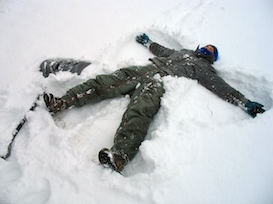
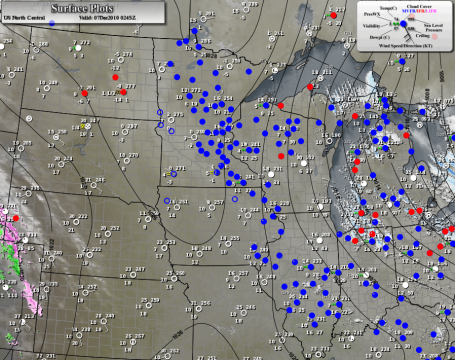
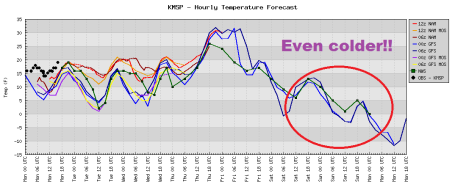
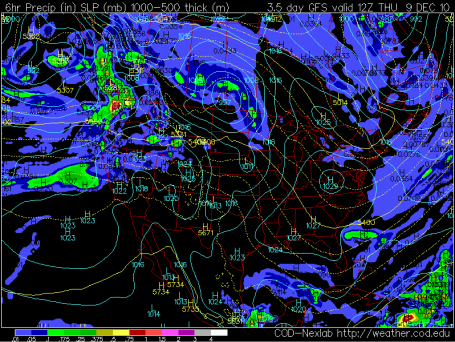
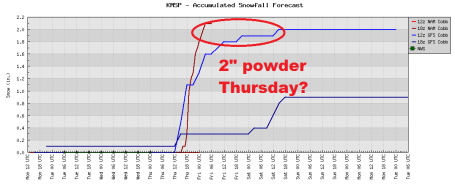
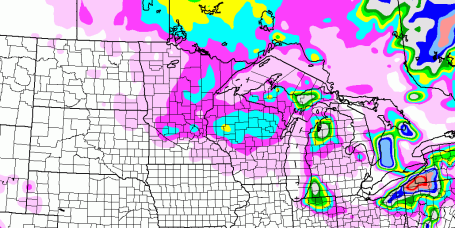
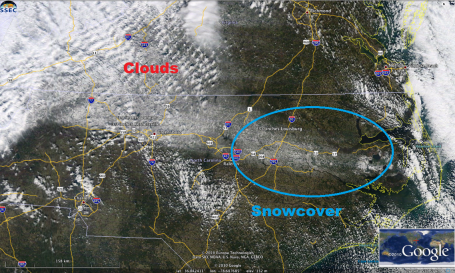

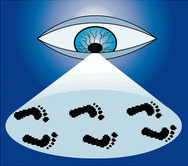
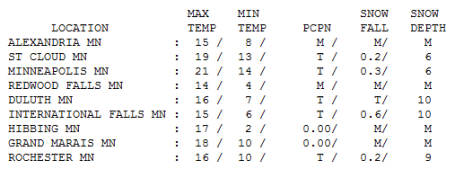
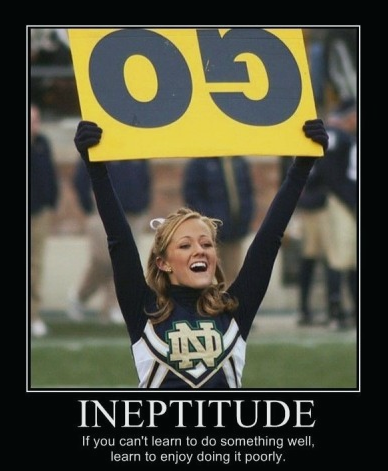
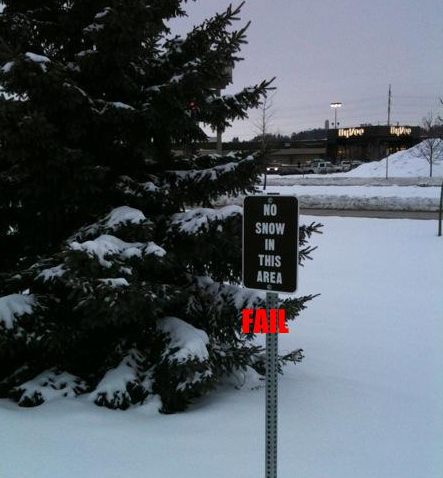
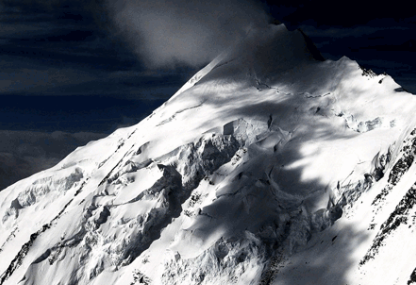
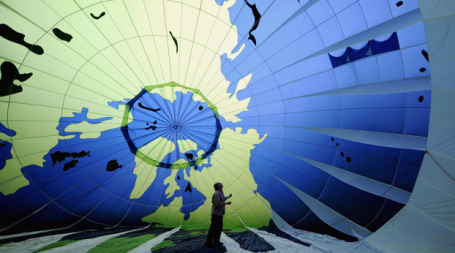
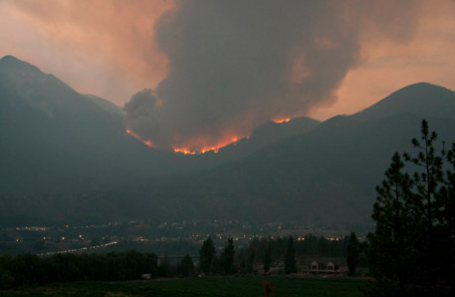
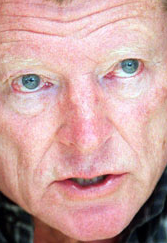
No comments:
Post a Comment